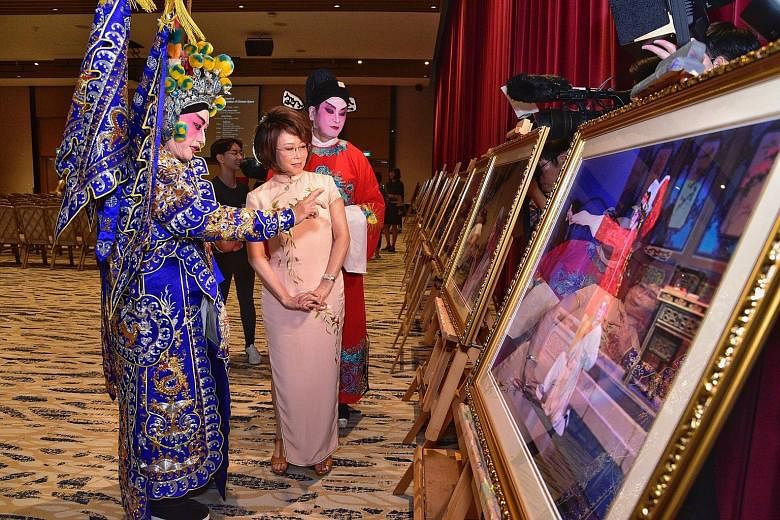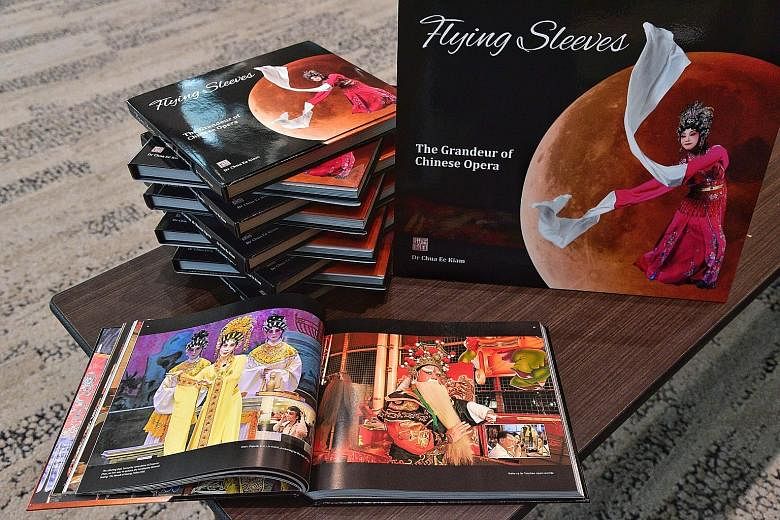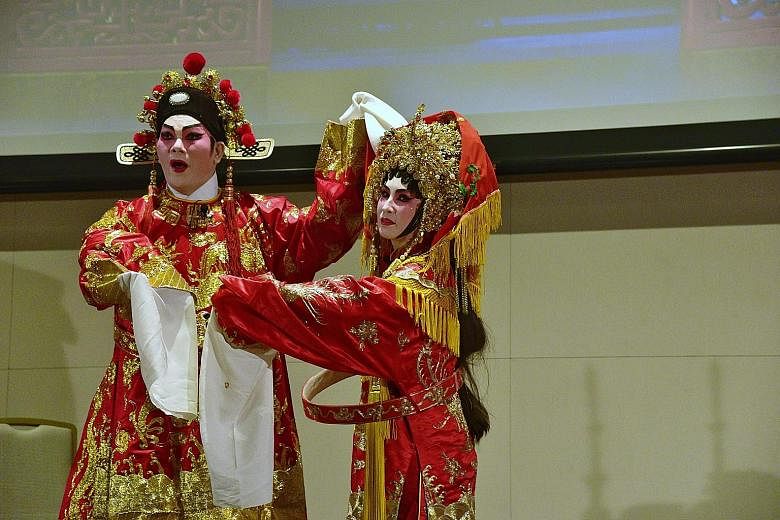During the golden period of Chinese opera here in the late 1800s to the 1930s, more than a hundred troupes staged thousands of shows a year in various Chinese dialects.
Today, local professional opera performers are a dying breed who number fewer than 100.
To reignite interest in the traditional art form, photographer Chua Ee Kiam, 65, has worked with students and teachers from the Institute of Technical Education College West to come up with a book on Chinese opera that seeks to connect with English speakers.
"There are many books in Chinese on Chinese opera but a dearth of information for the English-speaking audience," said Dr Chua, who is also a senior consultant at the National Dental Centre Singapore and clinical associate professor at the National University of Singapore's Faculty of Dentistry.
"Through photographs of operas performed in Singapore - shot over 12 years - I hope the book will inspire all of us to take a deeper look at this intriguing performance art," he added.
Titled Flying Sleeves - The Grandeur Of Chinese Opera, the book was launched on Sunday at the Singapore Chinese Cultural Centre.
It contains over 360 images of opera performances, showing the unique features of various opera genres and how opera has evolved in Singapore over the years.
Most of the pictures were shot by Dr Chua, who is better known for his wildlife photography.
In his foreword to the book, Deputy Prime Minister Teo Chee Hean wrote: "As a pre-schooler, I used to sit with my grandmother when she went to watch Teochew opera performed on a stage set up on Cuppage Road where many of my relatives used to live.
"The rhythm and the music of these operas bring back early childhood memories."
Chinese opera is performed in dialect, each with its own style. Teochew opera, for instance, is based on folk ballads and dances and is known for its clear singing, acrobatic stunts and fan-play.
Cantonese opera is often based on Chinese history and mythology and its makeup is the most distinctive among the different forms of opera.
Operas were often performed for free and props were scarce, with artistes miming to describe scenes or emotions.
"Removing a hat or helmet indicated that the character was exhausted or ready to surrender and shaking one's beard was an expression of anger," said Dr Chua, who started documenting opera in 2005.
One performer featured in the book is Mrs Joanna Wong, 79, who popularised Cantonese opera by staging performances in English.
Said Mrs Wong: "The book is one of a kind because of its comprehensiveness - covering various types of opera, performed by both local and overseas performers, and tracing them across the years."
• The hardcover book of over 200 pages is available at major bookstores at $55 (without GST).




